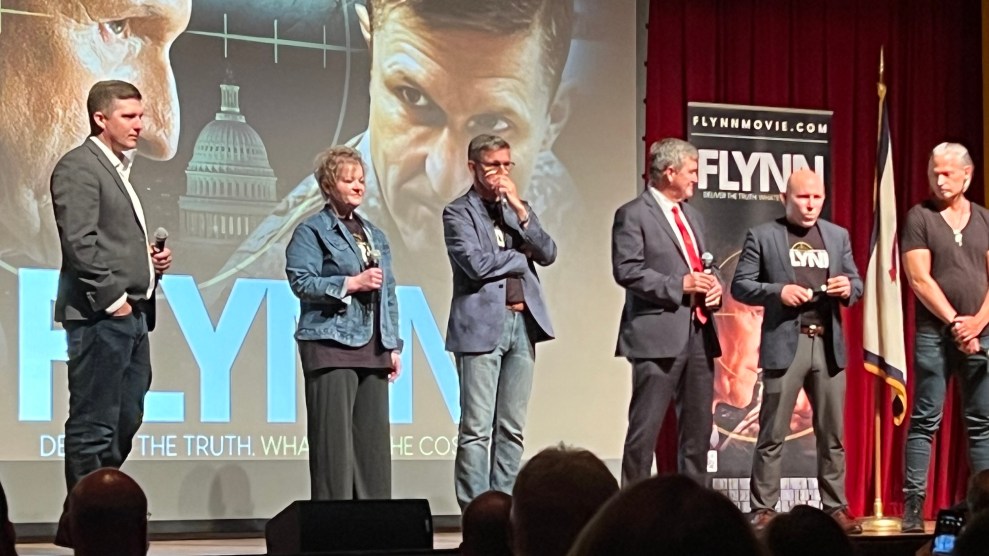| |
“This is a day to smile and smile big,” said Republican Chairman of the Senate Energy and Natural Resources, Pete Domenici. Last week, the GOP jumped at the chance to pass last year’s Democratic Energy Bill. Now, the Republicans are trumpeting victory, and strangely enough, so are the Democrats. Meanwhile, environmentalists are arguing that this bizarre plot twist — where Republicans passed an old Democratic bill — could actually undermine their efforts to create a more energy efficient society.
Last Thursday, the Senate voted to pass the 2002 Energy Bill largely created by Democrats instead of moving forward with the latest version of the 2003 Bill that was more favored by Republicans. “It’s the most incredible thing I’ve ever seen in the Senate: Republicans pass a Democratic bill and both sides declare victory,” said Democratic Senator Mary Landrieu.
After 18 days of debating the Energy Bill in the Senate, and with Congressional recess nipping at their heels, the lawmakers were growing restless. Then, when it seemed the parties would never come to a compromise, Tom Daschle said: “If our Republican colleagues really wanted to get a bill, what would have been wrong with taking the bill that 88 of us voted for last year and starting with that.”
Domenici nudged his fellow Republicans, and after a short break, they accepted the proposal.
Though the unprecedented move seems a far cry from victory for the GOP, it’s actually a clever move that will land the final version of the Energy Bill in the hands of a select few. Now that the Senate has approved the bill, it will move to a House-Senate conference committee that is dominated by Republicans. The Christian Science Monitor’s Gail Russell Chaddock paints a scary picture of the conservative conference committee as a third house of Congress where anything can happen — including a final version of the Energy Bill that looks a lot like the 2003 Republican-endorsed bill:
“The conference is what critics call ‘the third house’ of Congress, and it’s becoming the defining venue of the closely divided 108th Congress. While the Senate and House can vote down the results a conference compromise, it doesn’t often happen. Moreover, there’s nothing in the rules that says that this conference must somehow split the difference between Senate and House versions of a bill.
As former President Ronald Reagan once quipped: ‘If an orange and an apple went into conference consultations, it might come out a pear.’
The hard part was getting a bill out of the Senate. Once in conference, he and Rep. W. J. ‘Billy”‘ Tauzin (R) of Louisiana, the energy chairman on the House side, could rewrite it from top to bottom, Mr. Domenici said. The result would be a ‘Bush-Domenici-Tauzin bill.’
…
‘The final bill will look more like what I produced in committee this spring than the bill we just passed,’ said Senator Domenici in a press release after the vote.'”
Chaddock further writes that environmentalists, who had a problem with the Democratic bill to begin with, are now even more worried about what could happen in the fight between the environment and big business. They argue that, in capping the debate, the lawmakers fell short of a responsible energy plan and wound up putting the bill in the hands of industry interests:
“‘With this maneuver, the Senate has cut short needed debate on America’s energy future and failed to provide a responsible energy policy for the nation,’ the Sierra Club said.
‘The Senate neglected to adequately debate and vote on important issues such as reducing global warming pollution; closing the light-truck fuel economy loophole; requiring increased use of clean, renewable energy sources; and providing consumer protections against energy market manipulation,’ the Sierra Club added.
The U.S. Public Interest Research Group was just as angry. ‘There is no way that any conference between the House energy bill, written by the polluters for the polluters, and this Senate energy bill, which was plundered by the polluters, will produce the clean, safe energy policy that Americans deserve,’ USPIRG attorney Katherine Morrison said in a statement. ‘We are headed to a conference committee that will be dominated by allies of the polluters.'”
Republicans who will be sitting on the House-Senate conference committee may in fact be out high-fiving each other over the bill to come MSNBC’s Miguel Llanos reports:
‘The reason I’m smiling is because I’m going to be rewriting that bill,’ [Domenici] said, referring to the fact that, as chairman of the Senate energy committee, he’ll preside over the House-Senate conference. ‘We’re in the majority and we’ll write a completely different bill.’
Among the changes promised by Domenici: expanding nuclear power and opening more public lands to oil and natural gas drilling.
It’s not clear if conferees would try to insert language to allow drilling in the Arctic National Wildlife Refuge in Alaska. The previously approved House energy bill would, but neither the Democratic nor Republican bill in the Senate called for that.
President Bush, who wants Congress to pass an energy bill that allows refuge drilling, welcomed Thursday’s vote. ‘The president looks forward to working with the conferees to ensure that we enact a balanced and comprehensive energy policy this year,’ the White House said.”
So, what does this mean for American’s? It means that the new “Democratic” Energy Bill may have a noticeably Republican slant towards energy and environmental issues — from drilling regulations to fuel efficiency standards. Which could mean that last Thursday will prove a historic day for the “polluters.”















